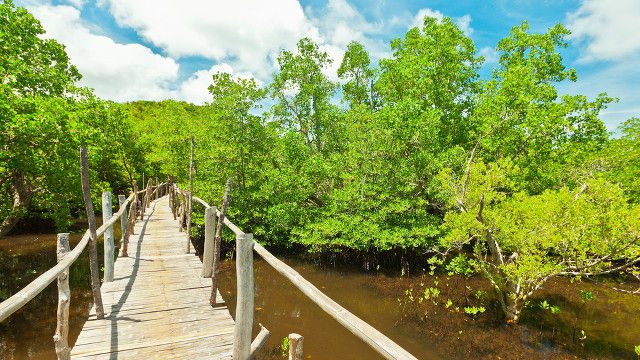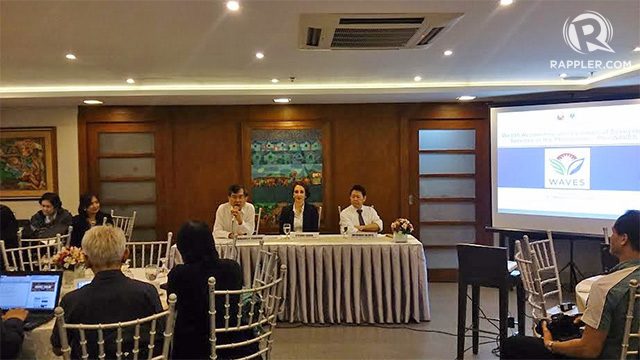SUMMARY
This is AI generated summarization, which may have errors. For context, always refer to the full article.

Introducing natural accounts can improve the measurement of economic performance and progress toward sustainable development, Esguerra added.
In April 2014, the World Bank approved a grant of $700,615 (P30.96 million) for the assessment of the Philippines’ natural wealth, including mangroves and minerals.
In September 2014, the country officially launched its work on an ecosystem accounting with consultation and workshops for two pilot sites: Laguna Lake Basin and Southern Palawan.
Toward informed policies

At present, there is no timetable for integrating environmental accounting into calculating the GDP, said Raymundo Talento, interim national statistician for the Philippine Statistics Authority (PSA), a stakeholder in the partnership.
However, the findings from WAVES can still aid policy-makers, said former Environment and Natural Resources Secretary Elisea Gozun, now serving as a consultant to the World Bank.
“Southern Palawan is rich in biodiversity, with a protected areas such as Mt. Mantalingajan and a growing tourism hotspot, but also has growing mangrove plantations, agriculture, fisheries, and operating mines,” Gozun said.
The findings from WAVES will help key decision-makers decide on the conflicting land use with sustainable development in mind, Gozun added.
Laguna Lake Basin is another area that is used for many different purposes, such as fisheries, agriculture, and industrial uses. At the same time, it is used as water source for Metro Manila and will continue to be the key water source for the future.
Ecosystem accounting will also help inform policy-makers on how to properly price water from the lake, Gozun said. – Rappler.com
Add a comment
How does this make you feel?
There are no comments yet. Add your comment to start the conversation.